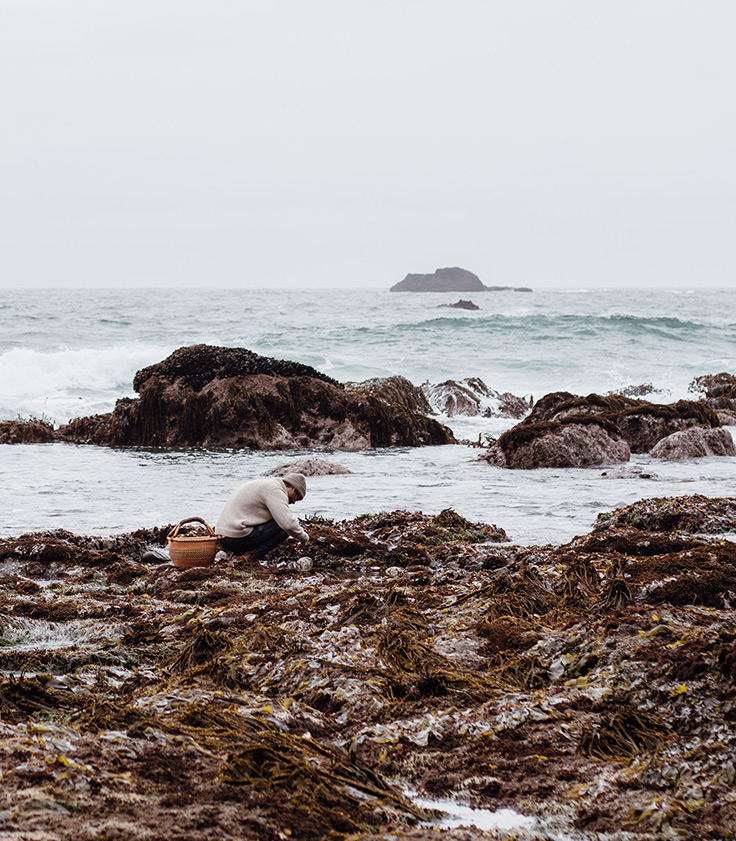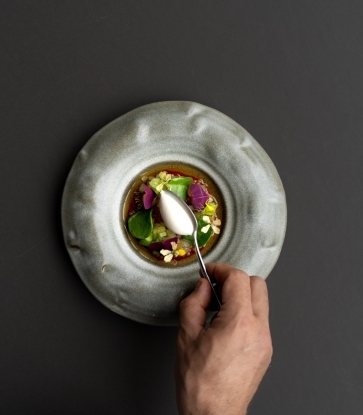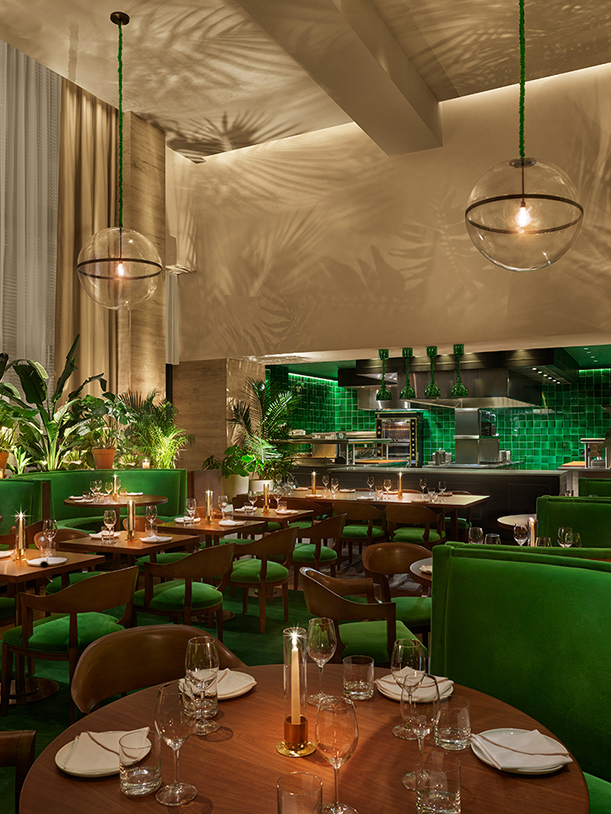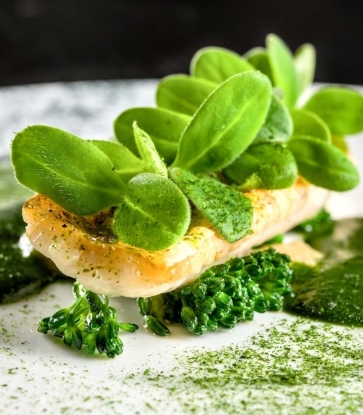For the first time, The MICHELIN Guide is recognizing restaurants in its selection that are committed to sustainable gastronomy through ingredient sourcing, waste and energy management and employee well-being. The first class of sustainability distinctions in California were announced during the Family Meal virtual event on October 27th.
“Green Stars” were awarded to seven chefs and restaurants, including: Chef Thomas Keller for The French Laundry, Chef Alice Waters for Chez Panisse, Chef Dominique Crenn for Atelier Crenn, Chef Michael Tusk for Quince, Chef Kyle Connaughton & Katina Connaughton for Single Thread, Chef Matt Kammerer for Harbor House and Chef Nancy Silverton for Osteria Mozza.
Here's a look at why Atelier Crenn was selected for this distinction.
It is no secret that Chef Dominique Crenn of Three-MICHELIN-Starred Atelier Crenn in San Francisco waxes poetic when it comes to food. Her kitchen philosophy has been described as “poetic culinaria,” and the menu at Atelier Crenn takes shape as free-form poetry. Each line corresponds with a course, though the words are far from literal.
It's no surprise, then, that Crenn cares deeply about her ingredients. After all, they are the basis of all creativity that occurs in the kitchen. And like many of her peers in the restaurant industry, Crenn is invested in controlling the entire life cycle of her ingredients—from seed to harvest to prep—to ensure the very best quality. In 2017, Crenn announced that Bleu Belle Farms in Sonoma county, a four-acre plot of land 45 miles from the city, would supply the restaurant with a majority of its produce.
A year later, in 2018, Crenn made a bold statement by removing meat completely from the menu at Atelier Crenn (though she still serves seafood and dairy). The decision was motivated by the environmental impact of meat production—ranches and farms are cited as significant contributors of greenhouse gases, a driving force behind climate change. She followed by removing meat from Bar Crenn’s menu a year later. (Petit Crenn, which opened in 2015, has always served a pescatarian menu.)
William Henpenn is the farmer and general manager of Bleu Belle Farm. He uses biodynamic methods, and, considering the restaurant’s shift away from meat, has been tasked with growing fruits and vegetables that can be the star of the plate, not just flourishes on the side. But Bleu Belle Farm doesn’t grow all of Atelier Crenn’s ingredients, and the remaining fishermen and farmers who supply the restaurant are expected to ascribe to the same goals of sustainability.

“Every day is a day of learning and being curious and being more sustainable than the day before,” Crenn said at The MICHELIN Guide’s virtual Family Meal event in October.
The Crenn Dining Group, which includes all three of Crenn’s restaurants, is also waiting for certification from Zero Foodprint, a non-profit organization that promotes regenerative agriculture by financially supporting compliant farms. The organization identifies farms with soil management practices that effectively reduce the amount of carbon in the atmosphere, and supports them with funds generated from participating restaurants. They also certify restaurants as carbon neutral.
Within the restaurant, Atelier Crenn is striving to be a zero-waste establishment from the kitchen to the dining room. Food scraps and other compostable items are sent back to Bleu Belle Farms to nourish the soil and single-use plastics are kept to a minimum. At dinner service, when that returns, guest napkins are made from recycled materials and candles burn olive oil rather than other oils.
“Sustainability practices have been at the core of our restaurant and our philosophy since the beginning,” said Crenn. But the urgency surrounding climate change has drawn Crenn into a more vocal role. Despite a breast cancer diagnosis in 2019 (thankfully, she has since beaten the disease), Crenn is as visible as ever in the fight to keep the climate crisis top-of-mind and in advocating for the restaurant community to move toward a more sustainable future. The MICHELIN Guide’s Green Star distinction hopes to shed even more light on Chef Crenn’s important efforts.

To hear Chef Crenn speak about sustainability and the future of the restaurant industry, visit this link to watch a recording of The MICHELIN Guide's virtual Family Meal event.


















